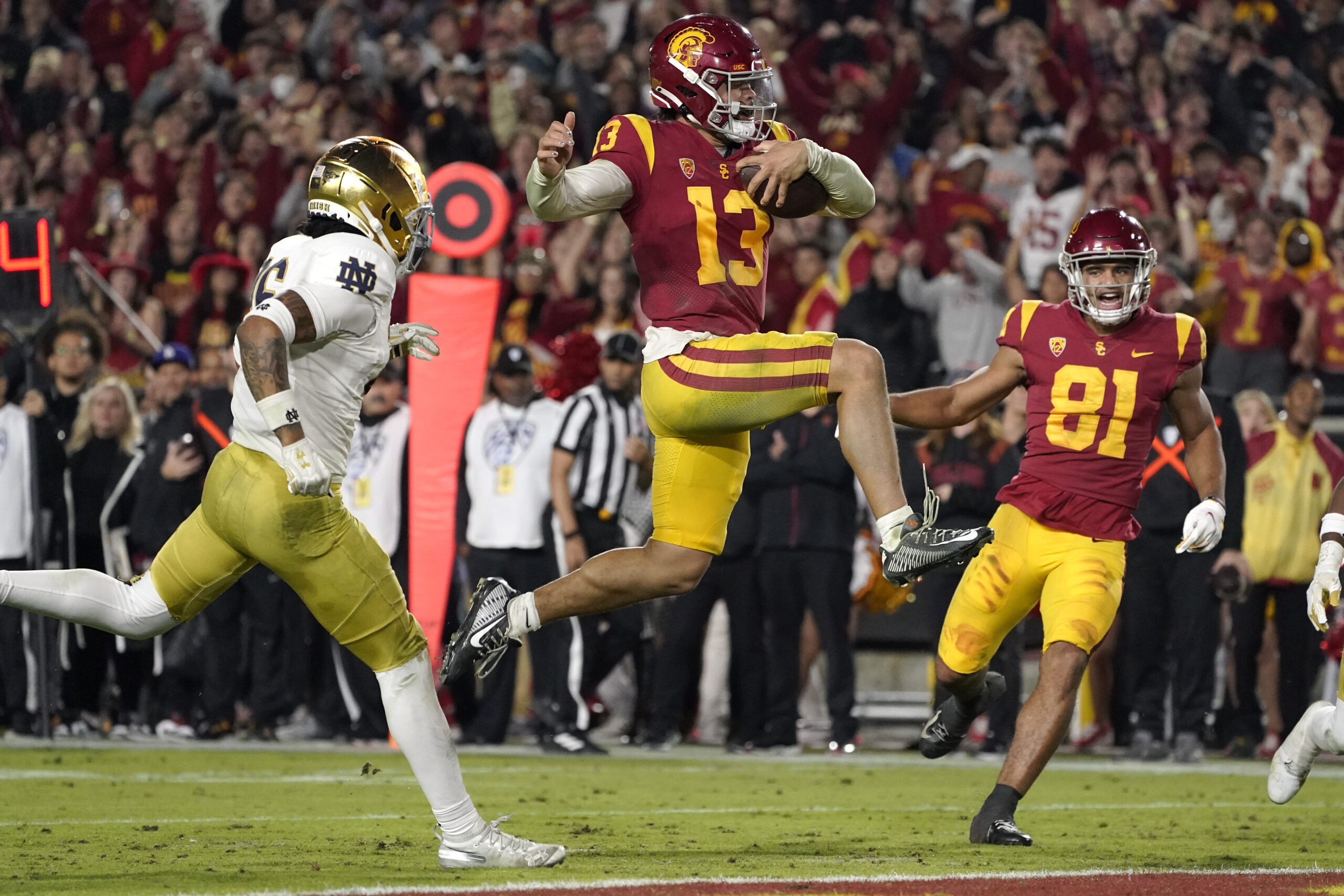Colleges rake in big money from TV contracts, who’s paying the taxes?
Aug 22, 2023, 9:00 PM | Updated: 9:28 pm

FILE - Southern California quarterback Caleb Williams jumps in for a touchdown as Notre Dame safety Xavier Watts, left, defends and Southern California wide receiver Kyle Ford watch during the second half of an NCAA college football game Saturday, Nov. 26, 2022, in Los Angeles. Caleb Williams was named to The Associated Press preseason All-America team, Monday, Aug. 21, 2023. (AP Photo/Mark J. Terrill, File)
Credit: ASSOCIATED PRESS
(AP Photo/Mark J. Terrill, File)
SALT LAKE CITY — Colleges and universities have been playing a game of musical chairs for some time in an effort to get in on some of the big money being produced by TV contracts from college football.
Recently, the Pac-12 Conference saw six of its members opt to leave for greener pastures in the Big-12 Conference and the Big Ten Conference. The University of Utah is one of those schools that will join the Big 12 in 2024.
Are these universities or conferences paying taxes on that income?
Scott Hodge, president emeritus and senior policy advisor for The Tax Foundation, shared some insight with KSL NewsRadio.
“This kind of reminds me of the old Steve Martin routine,” Hodge said. “You know how to make a million dollars and pay no taxes. Well first, you become a college conference because by being designated a quote-unquote educational organization, you can earn billions of dollars’ worth of TV contracts and other royalties. And pay no taxes because you are considered a nonprofit educational organization.”
TV contracts and the lack of taxes
Hodge says there is another issue that no one is talking about.
“The big sort of quiet element of this, of course, is that the networks get to deduct the payments they make to these nonprofit organizations,” he said. “This means, in the end, that none of that income is taxed at anywhere along the way. It is all tax-free, being subsidized by you and me, who are paying our taxes.”
Hodge says the Power 5 conferences have earned $3.3 billion in revenues in the past. Much of that money comes from TV contracts and events such as NCAA tournaments.
“And none of that is taxed,” he said.
Hodge also says these conferences also get no tax-free donations from the average person.
“The kind of donations that we get to deduct if we give it to the local food bank,” he said. “So, these are really commercial enterprises sort of masquerading as nonprofits and being effectively subsidized by the rest of us.”
Possible solution
“There’s an element of the tax law in which nonprofits do have to pay tax on what they call unrelated business income,” Hodge said.
As an example, Hodge says if a museum is selling novelties or tourist items that would be unrelated to their “core business.”
He says the museum would have to pay taxes on that sort of income.
However, Hodge points out that designation is so broad that it allows TV revenue to be exempt from that. As a result, that is why conferences don’t pay taxes on TV revenue.
“And so, what I would recommend is that Congress revisit that designation,” he said. “And declare things like TV revenues, royalties and that sort of what we call commercial income and designate that as unrelated business income.”
Inside Sources with Boyd Matheson can be heard on weekdays from 1 p.m. to 3 p.m.













